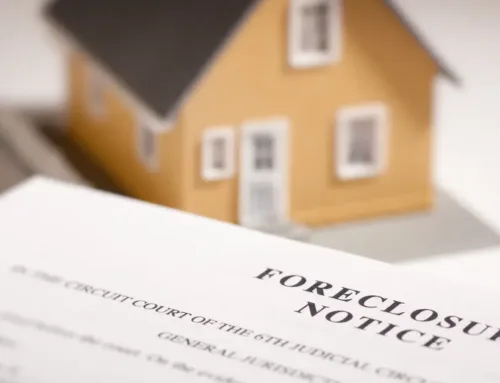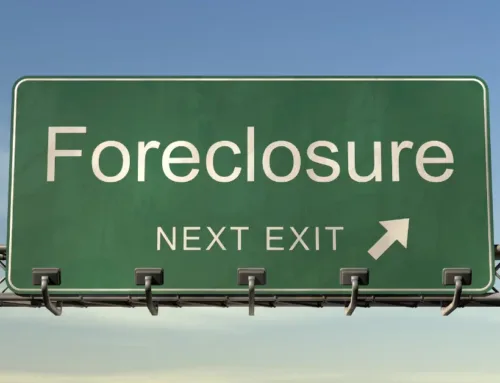Facing the possibility of foreclosure can be a distressing and overwhelming experience. But before you panic, it’s important to remember you’re not alone. Many homeowners in Texas have found themselves in similar situations, and legal avenues are available to help you navigate this challenging time. That’s where foreclosure defense comes in.
Foreclosure defense refers to legal strategies to protect your home from being sold at a foreclosure auction. Understanding your rights and options under Texas law can significantly affect your ability to keep your home or find an alternative solution that meets your needs.
Consulting with experienced Real Estate attorneys can provide the guidance and support necessary to manage this process effectively.
Key Takeaways:
- Proactive Foreclosure Defense: Legal strategies can prevent your home from being sold at auction, significantly protecting your property.
- Importance of Legal Guidance: Experienced Real Estate attorneys provide essential support and navigate complex legal processes in Texas.
- Understanding Texas Foreclosure Process: Texas uses a “non-judicial foreclosure” process involving specific steps and timelines, such as Notices of Default and Sale.
- Exploring Alternatives to Foreclosure: Options like short sales, deeds in lieu of foreclosure, and loan modifications can help avoid losing your home.
- Utilizing Legal Resources and Support: Seek assistance from legal aid organizations, HUD-certified housing counselors, and state bar referral services for specialized help in foreclosure defense.
Understanding Foreclosure in Texas
Texas is a “non-judicial foreclosure” state. This means lenders don’t need to file a lawsuit in court to initiate the foreclosure process. Instead, they must follow specific steps outlined in Texas Property Code Section 51.002 through 51.003.
The Foreclosure Timeline
Knowing the general foreclosure timeline can help you prepare and react promptly. Remember that timelines can vary slightly based on individual circumstances, but this overview provides a general understanding.
While facing foreclosure is undoubtedly difficult, it’s reassuring to know that foreclosures in the U.S. are significantly down from previous years. Data reveals that foreclosure filings in the first half of 2021 decreased significantly compared to the same period in 2020, showing positive signs for the housing market.
Let’s explore how this encouraging trend translates into legal options and actionable strategies for homeowners in Texas.
| Stage | Description | Typical Time Frame |
|---|---|---|
| Missed Payment | A payment is considered delinquent if not received by the due date. | Day 1 |
| Late Fees | Lenders usually apply late fees after a grace period. | After 15 Days |
| Notice of Default | Once a loan becomes 30 days past due, it is officially in default. Texas law mandates lenders provide a Notice of Default and Intent to Accelerate, allowing borrowers 20 days to take corrective action. This period allows time for reinstatement or to seek alternative solutions. | 30 Days Past Due |
| Notice of Sale | If no resolution has been reached after the 20-day window, the lender issues a Notice of Sale. This notice, typically sent by mail, must also be filed at the county clerk’s office and posted at the courthouse. | At least 21 days before the foreclosure sale |
| Foreclosure Sale | The property is sold at a public auction, typically at the county courthouse. The highest bidder becomes the new owner. | As per the date on the Notice of Sale |
Legal Strategies for Defending Against Foreclosure
Facing foreclosure is stressful, but remember that knowledge is truly power in these situations. By being proactive and well-informed, you’re taking a vital step toward protecting your home and achieving the best outcome.
Familiarizing yourself with Texas-specific legal processes and exploring possible defense strategies significantly impacts your success. You don’t need to navigate this alone. Let’s explore powerful legal avenues to help protect your rights and secure a brighter future.
Working with an Experienced Foreclosure Attorney
It’s highly recommended that you consult a skilled Texas foreclosure defense attorney. They can offer personalized guidance and ensure you comply with all legal requirements.
While many online resources are available, legal matters can be complex. Expert guidance is essential, and we will discuss this further below.
Raising Valid Defenses
Several potential defenses might apply to your situation, including:
Servicer Errors: A Common Challenge to Foreclosure
Did you know that lenders often make mistakes? Yes, that’s right, even big institutions are susceptible to errors. One of the strongest defenses in a foreclosure case arises when the lender hasn’t accurately followed proper procedures under Texas law.
This is where enlisting the right real estate attorney can be invaluable. During the process, they will carefully review your case for any procedural missteps and determine whether the servicer violated any Real Estate Settlement Procedures Act (RESPA) provisions.
Remember, don’t hesitate to challenge inconsistencies—it’s your right. This proactive approach protects your interests and might lead to more favorable outcomes. This critical step in your foreclosure defense can be empowering, giving you the agency to fight for your rights and home.
Other Common Defenses Against Foreclosure:
- Lack of Standing: If a lender has sold your loan and can’t prove they’re the current holder of your promissory note, they might lack standing to foreclose.
- Breach of Contract: If your lender has not lived up to the terms of your mortgage agreement, this could serve as a valid defense. For example, failing to credit monthly payments properly or apply escrow funds correctly could constitute a breach.
- Failure to Consider a Loan Modification: You can often work with your lender to modify your mortgage terms, creating an arrangement that allows you to keep your home. A “loan modification” restructures your repayment terms, offering a solution beneficial to both parties and potentially preventing foreclosure. Lenders are usually more inclined to work with borrowers who actively seek solutions.
Filing a Complaint
If you believe your loan servicer has acted improperly, filing a complaint can be beneficial.
- Contact the Consumer Financial Protection Bureau (CFPB): This agency investigates consumer complaints about financial products and services, including mortgages. You can file a complaint through the CFPB website.
Exploring Alternatives to Foreclosure
Several alternatives to foreclosure could help you avoid losing your home. These include:
- Short Sale: In a short sale, you sell your home for less than the outstanding mortgage balance, and your lender agrees to forgive the remaining debt.
- Deed in Lieu of Foreclosure: This involves voluntarily transferring the property title of your property back to the lender to satisfy your mortgage debt.
- Bankruptcy: While it may seem daunting, filing for Chapter 7 bankruptcy can, in some cases, provide relief from debts, including your mortgage, through an automatic stay. Bankruptcy law is complex, so seeking the expertise of a bankruptcy attorney is highly advisable.
Protection for Service Members: Know Your Rights.
Serving your country shouldn’t translate into sacrificing your home. Recognizing that military personnel face unique challenges, especially regarding deployment and financial instability, specific legal protections are available for them.
The Servicemembers Civil Relief Act (SCRA) safeguards active-duty service members facing foreclosure. It’s vital to understand these rights and, if applicable, bring them to your lender’s attention.
This essential knowledge helps navigate financial hardship during service more effectively, reinforcing the importance of comprehensive foreclosure defense. It reflects a system committed to safeguarding those dedicated to serving our country.
The Importance of Taking Action
If you receive a notice of default or believe that foreclosure is imminent, it’s important not to ignore it. The sooner you take action, the more options you’ll likely have.
Contact an experienced foreclosure defense attorney immediately to discuss your situation and potentially uncover how to fight foreclosure and win. They can employ common foreclosure defense strategies tailored to your situation.
Resources for Finding Legal Help
If you need help finding legal representation in Texas, consider the following options:
- State Bar of Texas Lawyer Referral Service: Visit the State Bar of Texas website or call their referral service. They can connect you with qualified attorneys in your area specializing in Texas foreclosure defense.
- Legal Aid Organizations: Explore legal aid options. Many reputable legal aid organizations provide free or low-cost legal assistance for foreclosure defense.
- HUD-Certified Housing Counselors: Leverage resources from the U.S. Department of Housing and Urban Development (HUD). Their network of HUD-certified housing counselors offers invaluable help in understanding your rights, exploring alternatives to foreclosure, and navigating available resources. Their services, often free of charge, provide extra support and guidance during these complex proceedings.
FAQs about foreclosure defense
What action could temporarily stop a foreclosure?
Filing for bankruptcy typically triggers an “automatic stay,” which can temporarily halt a foreclosure. It can give you additional time to reorganize your finances or explore other options to save your house.
How do you negotiate foreclosure with the bank?
Open communication is key. Contact your lender as soon as possible and try to devise a payment plan or explore alternatives like a loan modification.
Having an attorney to negotiate on your behalf may yield better outcomes.
What does foreclosure mean?
Foreclosure is a legal process where a lender takes possession of a property because the borrower failed to make mortgage payments as agreed. This often involves a scheduled sale, usually an auction, where the property is sold to the highest bidder.
How do you recover from a foreclosure?
Recovering financially and emotionally from a foreclosure takes time. To move forward positively, you can start rebuilding your credit and seeking advice from financial advisors.
Secure Your Home with Effective Foreclosure Defense
While the possibility of foreclosure is never pleasant, understanding foreclosure defense and your rights in Texas can dramatically influence the outcome.
It’s critical to remember you have options and should seek immediate guidance from professionals who’ve successfully helped others facing similar circumstances.
Don’t wait until it’s too late. Contact Kelly Legal Group now for expert foreclosure defense and take the first step towards protecting your home. Request an appointment today and let our experienced attorneys guide you.






